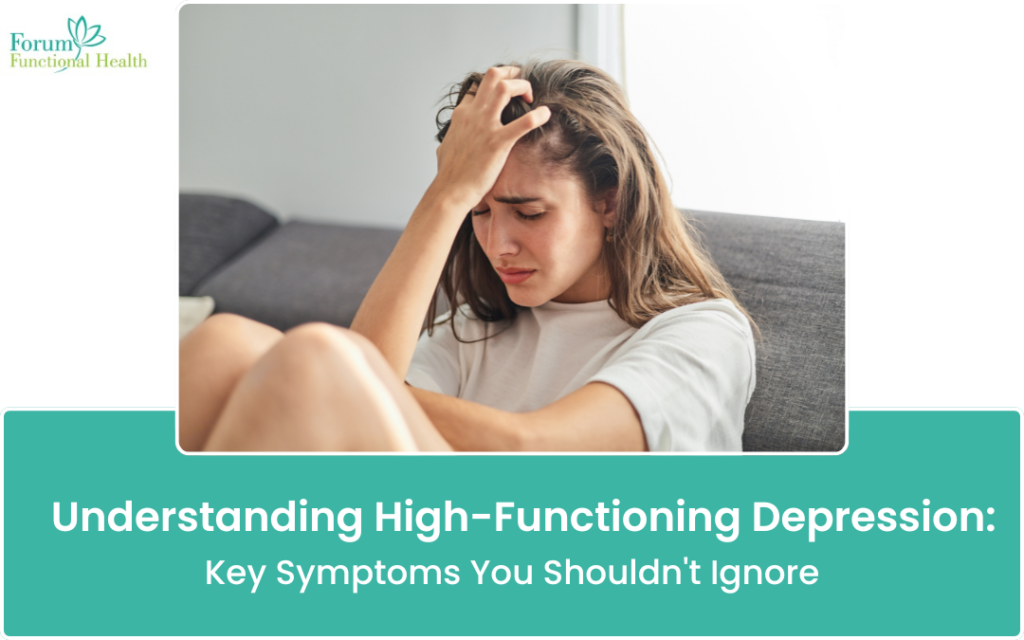Understanding High-Functioning Depression: Key Symptoms You Shouldn’t Ignore

High-functioning depression is a hidden struggle that many individuals endure in silence. Unlike more apparent forms of depression, those with high-functioning depression often manage to maintain their daily responsibilities, giving the illusion of normalcy. However, beneath this façade, they experience a persistent, gnawing sadness that impacts their well-being and quality of life.
What is High-Functioning Depression?
High-functioning depression, also known as dysthymia or persistent depressive disorder, is a chronic form of depression where individuals experience a low, dark, or sad mood most of the day for more days than not, for at least two years. Despite this, they appear to function well in their daily lives, masking their internal turmoil with a brave face.
Key Symptoms of High-Functioning Depression
Identifying high-functioning depression symptoms can be challenging, as they are often subtle and easily overlooked. Here are some critical signs you shouldn’t ignore:
- Chronic Sadness: A persistent feeling of sadness or emptiness that lasts for years.
- Low Energy: Constant fatigue and a lack of energy, even after a full night’s sleep.
- Sleep Disturbances: Insomnia or sleeping too much, yet never feeling rested.
- Poor Concentration: Difficulty focusing, making decisions, or remembering things.
- Irritability: Increased irritability or frustration, even over small matters.
- Hopelessness: A pervasive sense of hopelessness or pessimism about the future.
- Loss of Interest: Reduced interest in activities once enjoyed, including hobbies and social engagements.
- Appetite Changes: Significant changes in appetite or weight, either overeating or loss of appetite.
The Hidden Battle
Living with high-functioning depression means continuously grappling with these symptoms while trying to maintain a semblance of normalcy. It’s a constant effort to keep up appearances at work, with family, and in social settings, all while feeling disconnected and disengaged internally. This invisible struggle often goes unnoticed by others, leading to a lack of understanding and support.
Seeking Help and Depression Treatment
If you or someone you know is experiencing these high-functioning depression symptoms, it’s crucial to seek help. Professional treatment can make a significant difference in managing and overcoming this condition.
At the Forum Functional Health Center best Functional Health Center in McKinney Texas, we offer comprehensive depression treatment in Mckinney tailored to your needs. Our approach combines traditional therapies with holistic practices to address the root causes of your depression and promote overall well-being. Our experienced team is dedicated to helping you regain control of your life and find joy again.
Why Choose Forum Functional Health Center?
- Personalized Treatment Plans: We develop individualized treatment plans that cater to your unique situation.
- Holistic Approach: Our treatments include a blend of medical, psychological, and alternative therapies.
- Experienced Professionals: Our team consists of skilled professionals who specialize in depression treatment.
- Supportive Environment: We provide a compassionate and understanding environment to help you feel comfortable and supported.
Conclusion
High-functioning depression is a complex and often misunderstood condition. By recognizing the symptoms and seeking appropriate treatment, you can take the first step towards healing and reclaiming your life. Remember, it’s okay to ask for help. You don’t have to face this battle alone.
If you’re in Texas and seeking effective depression treatment, contact the Forum Functional Health Center in McKinney today. Let us help you navigate the path to recovery and find the peace and happiness you deserve.
Remember, understanding and addressing high-functioning depression is crucial for your mental health. Reach out to the Forum Functional Health Center for expert care and support. You are not alone in this journey
Also Read:- What Causes Type 2 Diabetes? Learn the Key Risk Factors
